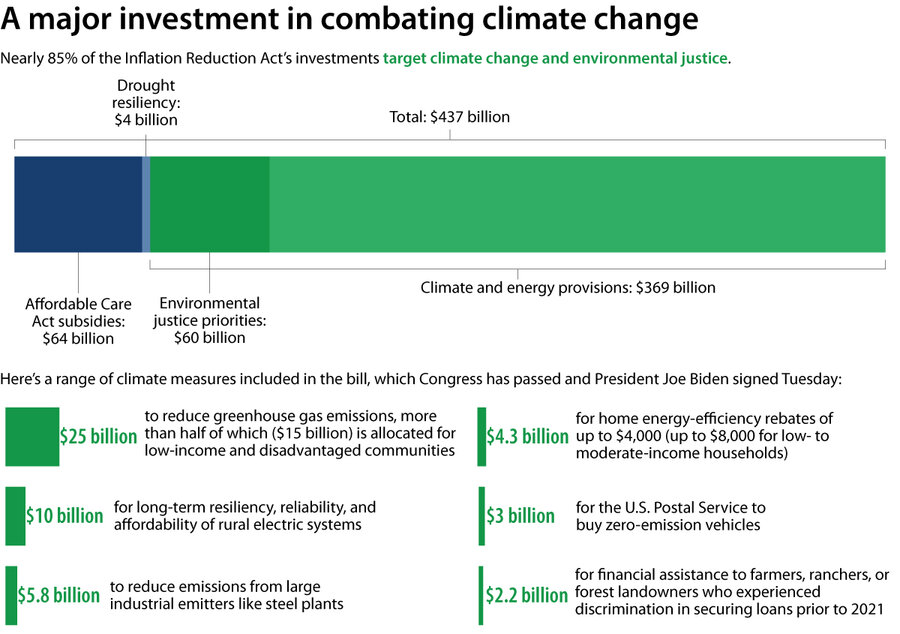The Inflation Reduction Act will allocate billions to combat climate change, while lowering the cost of some prescription drugs and cutting the deficit, although some analysts say it will not meaningfully impact inflation.
Monitor Daily Podcast
- Follow us:
- Apple Podcasts
- Spotify
- RSS Feed
- Download
 April Austin
April Austin
Could a fable about a rabbit be an antidote to despair? After reading “Alice’s Farm: A Rabbit’s Tale” by Maryrose Wood, I would answer an emphatic yes. This delightful book, aimed at 8- to 12-year olds, has captured adult readers as well. Alice, an eastern cottontail rabbit, rallies the animals in the forest – even those who would prefer to eat her – to save a family farm from developers.
“Writing children’s literature is a sneaky side door to writing stories that are animated by hope,” Ms. Wood says in an interview. “I want to offer tales that have the possibility of change; that things actually can get better. And the truth is that many adults appreciate those kinds of stories too.”
The book is gentle, honest, and poignant. It’s also a primer on how to improve one’s own patch of ground without falling prey to frustration or helplessness. Ms. Wood knows that people feel overwhelmed by what’s happening in the world. The drumbeat of news “makes us think that we are in a race to the bottom, we are facing doom on multiple fronts,” she says. “That’s a tough one, because when we are overwhelmed, it’s paralyzing. And I don’t think paralysis is a useful strategy.”
Alice may harbor doubts about her own effectiveness, but she accepts the challenge of convincing the animals – even the fox and weasel – to work together despite their differences. Most important, Alice finds the single thing all the animals can agree on: They don’t want to lose their home.
As a model of floppy-eared patience, Alice wriggles her way into your heart. “Isn’t it so often an unlikely hero, some person who steps forward and is willing to speak or to be vulnerable – that we almost instantly respond to them?” Ms. Wood asks. “We respond to true acts of heroism. It’s not feats of strength.”
She continues, “Alice totally embraces her vulnerability. And if you embrace vulnerability with that degree of honesty, I think you get two things out of it. You get compassion, right? But in addition to compassion, I think the other thing it gives you is a kind of rock-solid bravery.”











